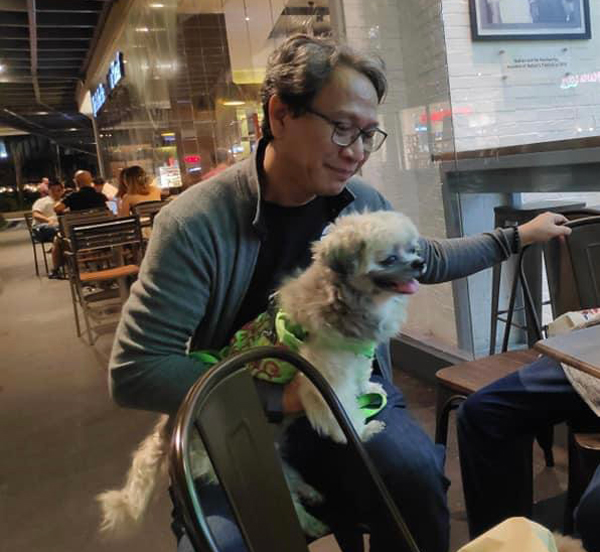Most owners consider pets as cherished members of the family. They form deep, loving connections with their pets. When a pet dies, it can be emotionally overwhelming for a lot of owners.
Even if others do not understand it, this grief is valid. The intensity of it may vary based on factors like an owner’s age, personality, the pet’s age, and the circumstances of their passing.
“Loss is an inevitable part of owning a pet, but there are ways to handle the pain, work through grief, and eventually, when the times is right, consider welcoming a new animal companion into your life,” says Rena Goldman in “How to Cope When You’re Grieving the Loss of a Pet” published in the Psych Central website.
The grieving process
Grief is a personal journey. It varies from person to person. Some individuals go through distinct stages of grief when they lose a pet, including denial, anger, guilt, depression, and finally, acceptance and resolution. Even years later, certain triggers like a familiar sight, sound, or a special anniversary can bring back strong feelings of grief.
· The grieving process takes time. Grieving cannot be rushed, and there is no specific or “normal” time frame for it. Some individuals begin to recover after a few weeks or months, while others may take years to heal. Regardless of how long it takes, it is important to be patient with one’s self and let the grieving process occur naturally.
· Experiencing sadness and pain is a typical response to the death of a cherished pet. Showing these emotions does not mean one is weak or has misdirected feelings. It simply shows that you are grieving the loss of a beloved family member. It is okay to grieve. There is no need to feel embarrassed about it.
· Attempting to suppress your pain or prevent it from emerging only makes it worse in the long run. To truly heal, you must confront your grief and actively address it. Express your pain and sorrow with others. Write about your emotions.

Coping with the grief
Although grief is a personal experience, you do not need to face your loss alone. Here are a few suggestions to help you cope from Goldman:
· Don’t let anyone tell you how to feel, and don’t tell yourself how to feel either. Your grief is your own, and no one else can tell you when it is time to “move on.”
· Reach out to others who have lost pets.
· Memorialize. Preparing a memorial, planting a tree in memory of your pet, compiling a photo album or scrapbook, or sharing the memories you enjoyed with your pet in social media.
· The stress of losing a pet can quickly deplete your energy and emotional reserves. Looking after your physical and emotional needs will help you get through this difficult time.
· If you have other pets, try to maintain your normal routine.
· Seek professional help if you need it.
Tips for seniors grieving the death of a pet
Dealing with the death of a pet can be especially challenging for older individuals. Seniors who live on their own might experience a sense of purposelessness and emptiness. The loss of a pet can also bring back painful memories of other losses.
Furthermore, if they wish to have another pet, it can be a complex decision due to concerns that the new pet might outlive them or that they may not have the physical capability to care for it one day.
Due to these factors, it is crucial for senior pet owners to take immediate steps to manage their grief and find a renewed sense of purpose.
Helping children grieve the loss of a pet
Trying to shield your child by telling them the pet ran away is not ideal to helping them navigate their grief in a healthy manner. This approach can lead the child to anticipate the pet’s return and feel betrayed or confused when they eventually learn the truth.
If the pet’s death is anticipated, it is better to prepare children for the loss and let them say their goodbyes.
In the case of an unexpected pet death, it is essential to explain what happened in a way that’s appropriate for their age.
“They might experience guilt, sadness, or fear of losing other loved ones. Sharing your own grief, writing letters, drawing pictures of your pet can demonstrate to your child that it’s okay to feel sad and can assist them in processing their emotions, both for them and you,” says Goldman.
Getting another dog or cat after pet loss
“There are numerous compelling reasons to welcome another animal companion into your life, but the timing of this decision is highly individual,” says Goldman.
“While it might be tempting to quickly replace the void left by the loss of your pet by getting a new one, in most situations, it is advisable to first grieve for your previous pet. You should wait until you are emotionally prepared to embrace a new animal into your life,” Goldman adds.
One way to ease into this transition is by considering volunteering at an animal shelter or rescue group. This not only benefits the animals but can also assist you in determining if you are ready to take on the responsibility of a new pet.
And when you are ready, remember that an animal shelter or rescue is a great place to find your next special friend.
About the Author: Niko Gabriel Salgado is a graduate of consular and diplomatic affairs from De La Salle College of Saint Benilde, and worked at the House of Representatives. He is now an entrepreneur and a volunteer of the animal welfare group Save Animals of Love and Light- Save ALL.


